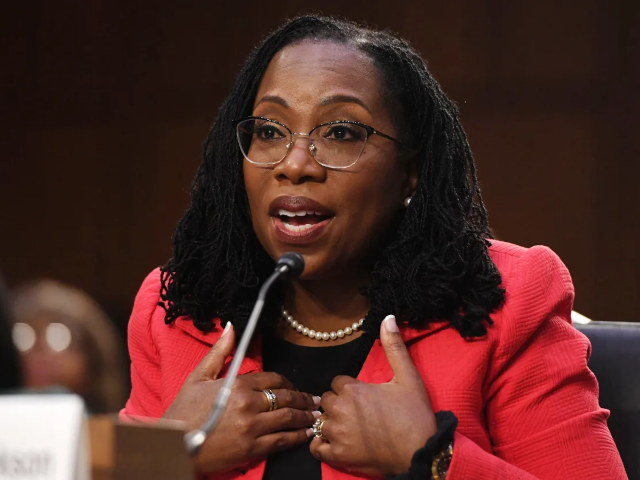Justice Jackson criticized for comparing ban on sex changes for minors to interracial marriage ban
Justice Ketanji Jackson under fire for comparing Tennessee’s transgender care ban to interracial marriage bans.

U.S. Supreme Court Justice Ketanji Brown Jackson is facing backlash after drawing a controversial comparison between Tennessee's ban on gender-affirming care for minors and laws that once prohibited interracial marriage.
Jackson made the comment during oral arguments on Wednesday, suggesting a connection between the two issues.
"You can't do something that is 'inconsistent with your own characteristics?' It's sort of the same thing," Jackson said, referencing the landmark Loving v. Virginia case, which struck down Virginia’s ban on interracial marriage. She questioned whether Virginia’s anti-miscegenation law could have survived if the state had argued in a similar manner to Tennessee’s current stance, which she described as a “classification argument.”
No, Justice Ketanji Brown Jackson, there is absolutely no comparison between banning the mutilation of children with banning interracial marriage.
— Steve Cortes (@CortesSteve) December 4, 2024
pic.twitter.com/K9OjGWdnVI
Justice Ketanji Brown Jackson, 54, appointed to the Supreme Court by President Joe Biden in 2022, is the first Black woman and the first former federal public defender to serve on the high court. Her recent comment on the Tennessee law has sparked criticism from various quarters.
Tennessee Solicitor General Matthew Rice rejected her comparison, arguing that the law is not about sex but rather the purpose of medical treatments. He emphasized that puberty blockers are used for conditions like precocious puberty, not just for gender transition.
The case, which concerns Tennessee’s ban on puberty blockers and hormone therapy for minors, has divided the Court. Conservative justices raised concerns about judicial involvement in complex medical matters, while liberal justices questioned the law’s impact on equal protection.
Justice Elena Kagan noted that the law appeared to enforce traditional gender roles, while Justice Brett Kavanaugh acknowledged the risks involved in both banning and allowing such treatments.
As the first Black woman on the Supreme Court, Jackson’s appointment marked a historic moment. However, her comparison of the Tennessee law to Loving v. Virginia has ignited a broader debate about the judiciary's role in addressing complex social and medical issues. The outcome of this case will have significant implications for transgender healthcare policy in the U.S.



















COMMENTS
Comments are moderated and generally will be posted if they are on-topic and not abusive.
For more information, please see our Comments FAQ